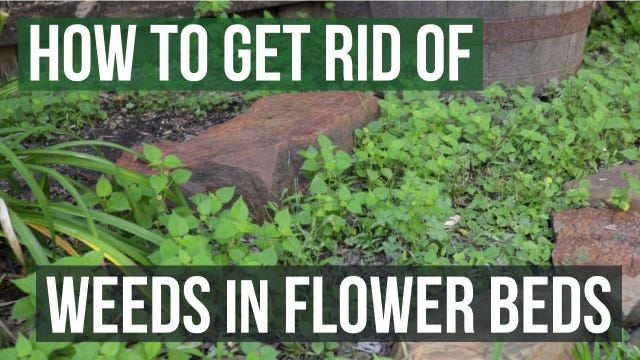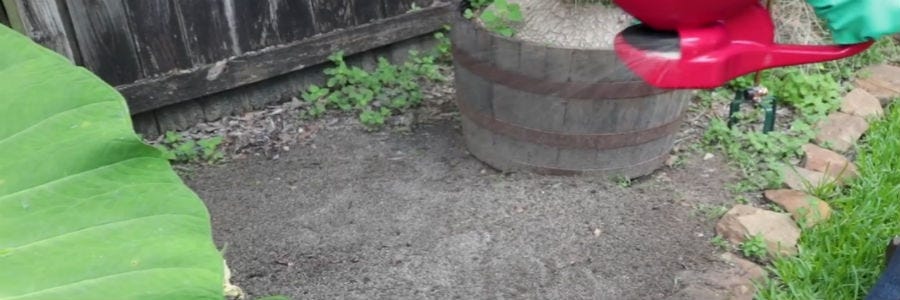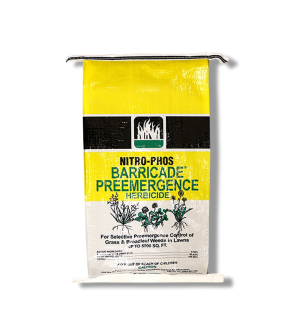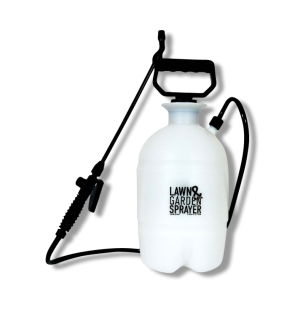Gain access to personalized product screening, the best pricing, rewards, and more!
Most Effective Products
Flowerbed Weed Control: How to Get Rid of Weeds In Flowerbeds
As a gardener, you may take pride in keeping your flower bed looking its best, but weeds can ruin your hard work. Weeds like bindweed, purple nutsedge, and bermudagrass are common weeds that pop up in flowerbeds. While most weeds in flower beds are nothing more than a minor nuisance, they can become aggressive and take away essential nutrients, water, and sunlight from your precious flowers if you do not intervene and put a stop to the invasion.
These weeds often are spread via seed or conducive conditions like ideal soil type or poor flowerbed maintenance. Depending on the weed, removal can be successful via hand-pulling. Still, other times, it is ineffective if the weeds have defense mechanisms or a complex underground root system. Either way, bending over and hand-pulling or digging weeds can be a chore.
Following our DIY guide to weed control in flower beds, you can successfully stop invasive weeds and save money by utilizing our professional quality herbicides.
Identification
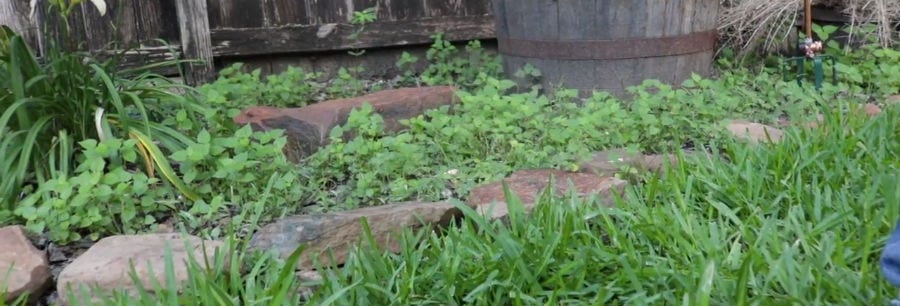
Start by identifying the weed species you have noticed in your flower bed. Many different weeds commonly pop up in flower beds--from grassy to broadleaf weeds, perennials, and annuals.
We have a library of the most common invasive weeds that our customers encounter, which you can conveniently look through to find your target weed. If you find your weed, you can see the specific techniques and chemical products we recommend for it and try it out yourself.
Check out our weed library to learn about the most common weeds, find out which one you have, and learn how to best control it using our recommended herbicide products and techniques.
Inspection
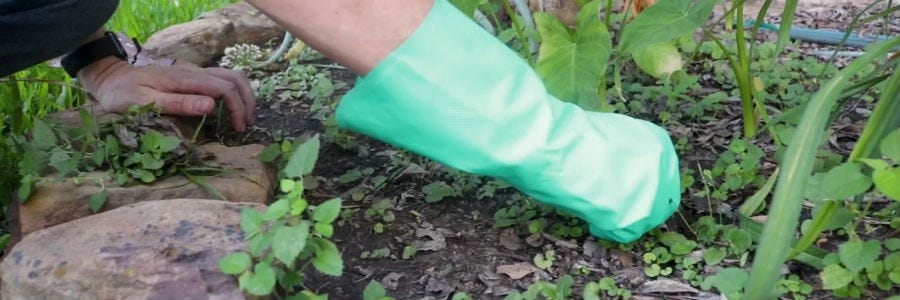
Inspection is important before applying herbicide products so you can determine which products to use and how much, as well as what approach to take when it’s treatment time.
Inspect the flowerbed to determine which weeds are present and how severe an infestation you have. If you have a weed that repeatedly pops up, note the times they emerge.
It is also important to know what time of year you are conducting an inspection. If you find weeds already up out of the ground, you will need to use a post-emergent. If the weeds haven’t popped up yet but you know they will eventually because of a recurring issue, you can lay out a pre-emergent as a preventative measure to keep weeds from germinating.
Using your inspection findings, you can move forward with a treatment approach.
Treatment
Before using any chemicals, ensure you are equipped with the necessary PPE (gloves, goggles, mask). Our best recommendation for removing weeds from flower beds is post-emergent treatment using Glyphosate and then applying Nitrophos Barricade to keep the weeds gone. Glyphosate works excellent on any weed you have, and Barricade serves as one of our go-to pre-emergents because of its broad label of control.
Step 1: Remove Emerged Weeds
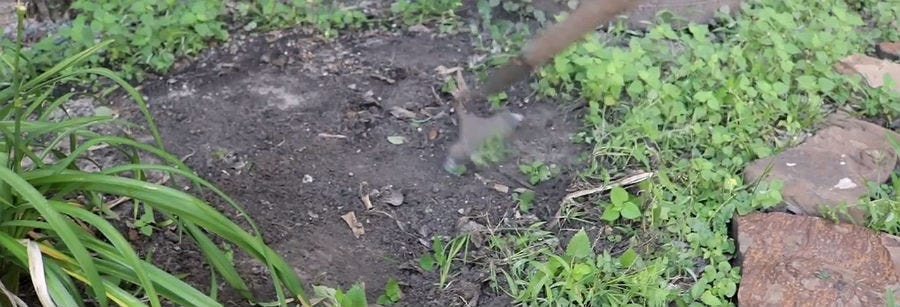
The best way to get rid of broadleaf weeds initially is to dig them out by hand or use a garden hoe. Alternatively, you can use a post-emergent weed killer before applying pre-emergent for prevention. We recommend glyphosate as it is an effective plant killer.
Because it’s non-selective, you must be very careful when applying it as it will kill any plant it touches. Use a flattened piece of cardboard to shield your desired adjacent plants from the glyphosate application. After this, you will see that the soil is broken up and smoothed out, which is a nice foundation for pre-emergent herbicide application.
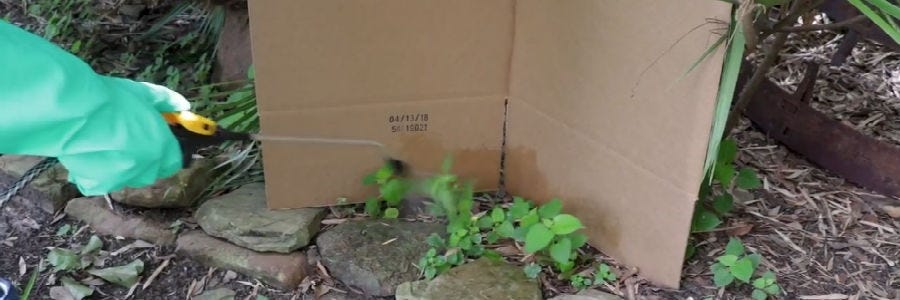
Step 2: Prepare Barricade
While you may have no choice but to attack weeds that have emerged, it’s better to attack weeds before they pop up with a pre-emergent. Barricade is an easy, ready-to-use pre-emergent that is extremely effective in preventive weed growth in flower beds and offers up to a six-month residual.
Barricade needs a uniform application to the soil surface to be most effective. Apply 2.5 to 5.94 pounds for every 1000 sq ft. You’ll need to pre-measure your treatment area first. Always read the label for proper usage and application rates.
Step 3: Apply Barricade To Flower Bed
Spread the barricade evenly using a granule hand spreader to get a uniform application. Follow up by watering the granules with a garden hose or rain if it's on the forecast. Get at least half an inch of water over the top of the granules.
Prevention
To prevent weeds in the future after removing them using the methods in our treatment phase, we recommend a combination of cultural practices and pre-emergent herbicides to serve as a barrier to keep weed seeds from germinating.
Apply mulch as it is a natural physical barrier to emerging seedlings. You could use gravel, bark clippings, leaf litter, or other materials to deter weeds. Apply Barricade pre-emergent in the Fall and the early spring to keep weeds at bay. With a 3 to 6-month residual, it will keep your flower bed weed-free for longer.
Key Takeaways
- Weeds in flower beds can be frustrating, but they are not impossible to eliminate with pre- and post-emergent herbicides.
- Apply Barricade pre-emergent at the proper time to effectively control common weeds that like to pop up in your lawn.
- You can easily knock down weeds that have already emerged with a glyphosate-based herbicide.
- Spot treat carefully when using glyphosate so as not to harm your desired flowers and plants.






